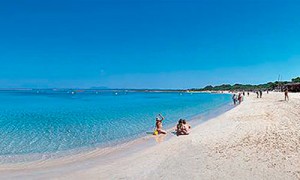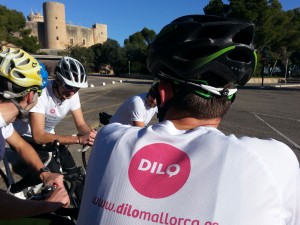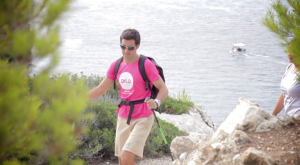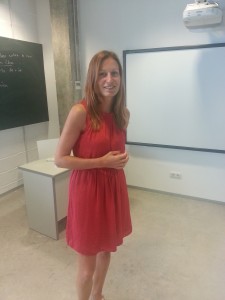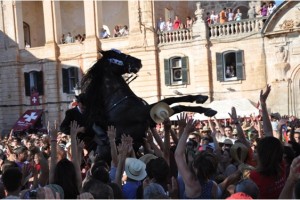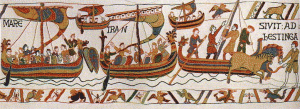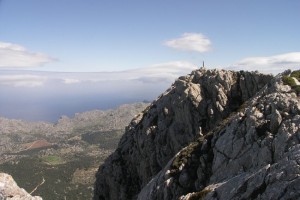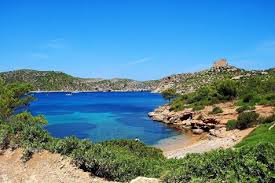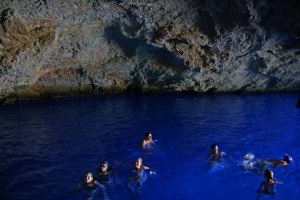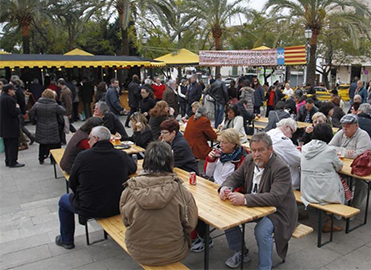 Hoy entrevistamos a María, nuestra recepcionista. El estar en primera línea y ser la primera persona con la que contactan nuestros clientes, la convierte una pieza fundamental del equipo de DILO.
Hoy entrevistamos a María, nuestra recepcionista. El estar en primera línea y ser la primera persona con la que contactan nuestros clientes, la convierte una pieza fundamental del equipo de DILO.
Háblanos un poco de ti, María, y de tu experiencia profesional antes de llegar a DILO.
He trabajado como administrativa en el sector turístico durante muchos años, por lo que también tengo buena experiencia en el trato al cliente. En estos trabajos he podido perfeccionar los idiomas que hablo, combinando el estudio con la práctica necesaria para adquirir un buen nivel. Tengo un alto nivel de inglés, alemán, francés y nociones de ruso e italiano.
¿En qué consiste tu trabajo en DILO?
Mi trabajo consiste básicamente en llevar la recepción y la atención de los clientes de la escuela, y también atender las demandas que recibimos desde el extranjero para la escuela de español.
¿Qué es lo que más te gusta de trabajar aquí?
Trabajar en una escuela de español es genial. Me gusta mucho estar en contacto con todo lo relacionado al estudio de Idiomas y me incentiva a seguir aprendiendo.
Ahora vives en Inca, aunque eres originaria del Port d’Andratx. ¿Qué tal la vida en Inca? ¿En qué es diferente de otros sitios donde has vivido?
Inca me gusta mucho. Aunque no soy de aquí, he venido de vacaciones desde pequeña y me siento muy cómoda entre la gente de aquí. He vivido también en Palma y en comparación, los inqueros son gente más amable y cercana.
¿Podrías compartir con nosotros alguna anécdota o experiencia interesante que hayas vivido en DILO con nuestros estudiantes de español?
La verdad es que llevo poco tiempo aquí, pero lo que sí me ha sorprendido mucho ha sido lo contentos que salen los alumnos después de su clase de Español. Es gratificante ver que el sistema de aprendizaje de DILO es tan bien acogido y se obtienen tan buenos resultados.
Desde tu punto de vista, ¿qué hace a DILO diferente de otras escuelas de español?
Sin duda, lo que destaca en DILO es la forma de enseñar, mucho más didáctica y entretenida pero no menos eficiente. En el poco tiempo que llevo ya he visto varias personas muy satisfechas con nuestro trabajo y con ganas de seguir aprendiendo, algo imprescindible para llegar a un buen nivel de español.
Muchas gracias por tu tiempo y tu amabilidad, María, y desde aquí aprovechamos para desearte mucho éxito en tu trabajo.


